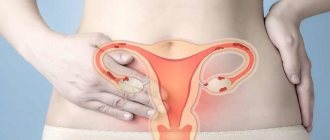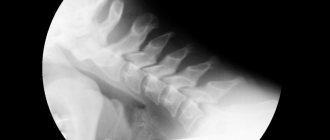Fatigue and nausea
are common symptoms that often occur together. In some cases, these symptoms may develop as a result of lifestyle choices such as poor sleep, diet, or lack of exercise. In other cases, they may indicate the presence of a disease that requires treatment.
Fatigue
is a term that describes a lack of energy or feeling sluggish.
Nausea
is a feeling of stomach discomfort or the need to vomit.
Possible causes of pathology
There are many reasons that can lead to poor health. Not all of them indicate the presence of serious diseases. Most often, dizziness and nausea in women are provoked by:
- Dieting. To get a beautiful figure, women often go on grueling diets. This affects your health. The body does not receive the necessary substances, which can cause not only nausea and dizziness, but also fainting. To bring your health back to normal, you need to eat well. If you continue to follow the diet, it can cause serious consequences.
- Side effects of medications. Most often, nausea and dizziness are caused by antibiotics. If side effects occur, doctors usually reduce the dose or stop taking the medication.
- The woman has a weak vestibular apparatus. She can get motion sickness in any vehicle. In this case, roller skating, swings or ice skating, as well as a number of other situations, can provoke nausea and dizziness.
- There is an exacerbation of various diseases. Nausea and dizziness can be caused by pathologies of the blood vessels, spine or brain. Diabetes and cancer often exhibit the same symptoms. In this case, nausea and vomiting are a signal of the presence of the disease.
- The woman experiences severe stress and shock. Due to anxiety, blood delivery to the brain is disrupted, which leads to oxygen starvation and nausea and dizziness.
- A woman is constantly tired, lacks sleep or is overtired. It will be possible to get rid of unpleasant sensations only by establishing a daily routine. Work must be alternated with rest.
- Magnetic storms. Nausea and dizziness may occur in women with severe weather dependence or in cases of problems with blood pressure.
What is the danger and when should you see a doctor?
Dizziness is a fairly common complaint among patients when visiting a doctor.
This symptom can occur due to a large number of reasons:
- If dizziness occurs infrequently and without accompanying symptoms, then there is no danger to health.
- If the reason lies in overwork , stressful situations, fasting, poor nutrition, etc., then you need to bring your well-being back to normal, your daily routine and diet, and dizziness will disappear on its own.
- If dizziness occurs frequently and is accompanied by multiple symptoms, you should consult a doctor as soon as possible. In case of fainting, numbness of the extremities, nausea, vomiting, it is necessary to call an ambulance. Only a doctor can make a correct diagnosis after conducting the necessary examination.
Diseases that can cause nausea and vomiting
Nausea and dizziness are not normal. To understand the causes of this condition, it is necessary to pay attention to additional symptoms that arise along with the urge to have a bowel movement. The condition may be caused by:
- Vestibular neuritis. Pathology is present if there is a clear increase in the feeling of dizziness when turning your head and getting up from a chair to your feet. A feature of the disease is the rapid onset of pathology and rapid improvement. After 24 days a person can return to normal. Episodes of nausea and dizziness may recur at regular intervals.
- Increased or decreased blood pressure. If the pathology develops, dizziness and nausea appear suddenly. They are accompanied by headaches of varying severity. Vomiting may occur. In some cases, episodes of its occurrence are quite frequent. A woman may feel hot or cold.
- Presence of pathology of the eye muscles. The presence of the disease is indicated by flashing images before the eyes. This leads to an attack of nausea and dizziness. The unpleasant sensations disappear a few minutes after the flickering is eliminated.
- Injuries to the spinal column or head. Depending on the degree of damage, nausea and dizziness may vary in severity.
- The presence of anemia. Unpleasant sensations arise due to a lack of nutrients for the brain, as well as due to the effects of toxins that are formed in the gastrointestinal tract as a result of digestive disorders.
- A woman developed basilar migraine. Nausea and dizziness in this case indicate an imminent attack. They appear approximately 1 hour before it starts. Additionally, there may be vomiting, darkening of the eyes and flashing spots, tinnitus, as well as other neurological symptoms.
- The presence of benign positional vertigo. Unpleasant sensations intensify with any change in body position. To confirm or refute the presence of pathology, a special test is performed. It gives 100% results. To perform the test, the patient must sit on the edge of the couch and tilt their head back. You must remain in this state for a minute. Then the person should lie on the couch and turn his head 45 degrees to one side. If pathology is present, dizziness will occur when turning the head. If a doctor is monitoring a patient, he will notice involuntary movement of the person's eyes along a vertical or horizontal plane.
- The presence of pathology of the cardiovascular system. Nausea and dizziness in this case develop due to increased cholesterol levels in the blood and atherosclerosis. Due to the fact that the blood vessels of the brain are narrowed, oxygen starvation may occur. It is accompanied by a whole list of symptoms. The pathology is often accompanied by headaches, fatigue, impaired attention and memory.
- Perilymphatic fistula. The appearance of tinnitus and a number of other reasons can lead to nausea, dizziness and vomiting.
- Poisoning or drinking alcohol. Toxic substances and breakdown products of alcohol can have a negative effect on the gastric mucosa and brain cells. The body is able to respond to this by causing dizziness and nausea. Poisoning often occurs against the background of vomiting, headaches and signs of intoxication.
If episodes of nausea and dizziness recur frequently, it is recommended to undergo a comprehensive diagnosis to identify the cause of the pathology.
Under what other conditions do you feel dizzy when you stand up?
Feeling dizzy when you suddenly stand up also occurs under other common conditions. Each of them is discussed separately below.
Ear diseases
Usually affects individuals in advanced years. Caused by loss of resistance to swings and changes in human posture. A very common cause of dizziness when standing up. Moreover, in different situations it is easy to feel dizzy: when getting up and when lying down, turning your head in different directions.
Migraine
This disease provokes very intense throbbing pain, especially in the temporal part. Leads to incorrect orientation of the victim when standing up. Migraine provokes such a manifestation - when you get up, your vision suddenly becomes dark and you feel dizzy.
Bad habits
Drinking alcohol and smoking saturate the body with harmful substances. Every cell is poisoned. The result is that brain functions are impaired and dizziness occurs. The reasons why men get up are most often associated with an incorrect lifestyle.
Medicines
Sometimes, while taking medications, you may feel dizzy and may experience nausea. Caused by a person’s individual reaction to medications. It is not difficult to identify why exactly dizziness appeared when standing up suddenly. Because an attack occurs almost instantly after taking the pills. Dangerous medications:
- Phenobarbital;
- Scopolamine;
- Furosemide;
- Diazepam;
- Propranolol.
The appearance of nausea and dizziness depending on age
Nausea and dizziness can occur at any age. However, the causes of this condition often vary greatly. So, if a woman under 40 is faced with a problem, the following can lead to the appearance of an unpleasant symptom:
- Chronic fatigue syndrome. The modern rhythm of life leaves virtually no time for rest. All this leads to physical and mental fatigue. Additionally, lack of sleep may occur. All this causes exhaustion of the nervous system, which provokes dizziness and nausea.
- The presence of pathological processes. Diabetes mellitus, osteochondrosis, oncology, and high blood pressure can also cause dizziness and nausea.
- Psychotraumatic situation. Severe anxiety can impair blood circulation in the brain and provoke the appearance of unpleasant symptoms.
If a woman is between the ages of 40 and 50, the reasons leading to unpleasant sensations change. Much more often, nausea and dizziness appear due to:
- inflammation of the middle ear or other diseases of the hearing organs;
- vestibular neuritis;
- blockage of blood vessels and labyrinth;
- multiple sclerosis;
- paroxysmal dizziness.
After 50 years, a woman experiences a decline in reproductive functions. During menopause, degenerative processes begin. They affect all systems of the body. The effect is especially great on the heart and blood vessels. Additionally, there is a change in hormonal levels. All this becomes the fundamental reason for the appearance of nausea and dizziness. The symptom may indicate:
- hypertension;
- cervical osteochondrosis;
- measuring intraocular pressure;
- damage to blood vessels;
- atherosclerosis;
- head or spinal injury.
In older women, nausea and dizziness may occur as a result of the natural aging process of the body. A common cold or overwork can provoke unpleasant sensations. Infection can also disrupt the functioning of the vestibular apparatus. Dizziness, weakness, and drowsiness may indicate the onset of cancer. Symptoms may appear if the patient has previously received head injuries.
Risk factors
Factors that may increase your risk of developing dizziness include:
- Age. People over 65 years of age are more likely to have medical illnesses that cause dizziness. They are also more likely to take medications that can cause dizziness.
- Taking certain medications. Some medications, such as blood pressure medications, anticonvulsants, sedatives, and tranquilizers, may cause dizziness.
- Previous episodes of dizziness. If a person has experienced dizziness before, then the likelihood of repeated episodes of dizziness is higher.
What to do if you experience nausea and dizziness?
An attack of nausea and dizziness may occur suddenly. If the reasons for this are unclear, a woman often panics. However, first of all you need to calm down. Then it is recommended:
- Lie down or rest your head against a hard surface. This can alleviate the woman’s condition a little.
- Closing your eyes is not recommended. Breaking the rule often leads to increased symptoms. It is better to focus your gaze on one place or object. This will make it easier to bear the ailment.
- You must ask to open a window or window if the room is stuffy.
- It is recommended to take a sedative of herbal origin.
- If a woman feels like she is about to lose consciousness, she needs to sit down so that her head is between her knees.
If symptoms do not go away, it is recommended to call an ambulance.
What can you do to help during an attack?
If weakness and pain occur when you get up and lie down, the following rules will help:
- Stop panicking and try to calm down.
- It’s better to lie down for at least five minutes to recover.
- If you have nowhere to lie down, you need to at least squat.
- The gaze should be focused exclusively on one object, without running your eyes.
- You should immediately open the windows wide open to provide oxygen access.
- You need to get rid of items of clothing that interfere with breathing.
- Apply something cool to your forehead.
If all this does not help, and the condition only gets worse, you need to urgently call the emergency number “03”.
Medicines
You should remember that you cannot take any pills without a doctor’s prescription. Most often, experts prescribe the following medications to prevent dizziness when standing up:
- Betaserc;
- Metoclopramide;
- Flunarizine;
- Dramamine;
- Stugeron;
- Memoplant;
- Glycine.
Folk remedies
You don’t have to stuff the patient with chemicals, but try proven folk remedies:
- Solution for inhalation. To prepare, you need to mix peach and cedar oils in equal quantities. Dissolve the resulting mixture in burdock oil. Store in a well-closed bottle in a dry, dark place. If you feel dizzy when standing up, you just need to smell the resulting mass.
- It is recommended to prepare a decoction of chamomile. To do this, you need to mix five grams of dry herb with the same amount of dried horsetail and lemon balm. Brew like regular tea. Leave for ten minutes. Then strain and drink.
- Exercises for dizziness when standing up will help. Sit on a chair, straighten your back and head. Then start rotating it left and right ten times, then up and down ten times. And so three times.
Diagnostics
To accurately determine the causes of dizziness, it is necessary to undergo diagnostics. First of all, a thorough history will be taken. The doctor will clarify the following:
- time of onset of symptoms;
- presence of injuries;
- nature of dizziness;
- accompanying symptoms;
- presence or absence of hearing or vision loss;
- whether medications were taken;
- whether the patient uses alcohol and drugs.
The patient will then be referred for diagnostics. The list of studies largely depends on the results of the preliminary survey. A general blood test is required. It allows you to get an idea of the state of the body and the presence of pathological processes. Additionally, the following can be carried out:
- Ultrasound;
- MRI of the brain;
- pure tone audiometry;
- X-ray of the cervical spine;
- electroencephalography;
- neurological and otoneurological examination.
Based on the results of the studies, adequate treatment will be prescribed.
Lifestyle
- The patient should be aware that dizziness can lead to loss of balance, which can lead to a fall and serious injury.
- You must try not to move abruptly.
- You need to get up slowly.
- Carpets or electrical cords must be removed from the room. Anti-slip mats should be used in the bathroom.
- If the patient feels dizzy, then it is necessary to sit or lie down.
- Driving a car or operating heavy machinery should be avoided if the patient experiences frequent dizziness.
- It is necessary to use good lighting on the stairs and where the patient walks at night
- When walking, use a cane for stability if necessary.
- Avoid the use of caffeine, alcohol and tobacco. Excessive use of these substances may worsen dizziness.
Treatment options
Treatment of nausea and dizziness is aimed at eliminating the cause that provoked the malaise. Depending on the characteristics of each specific case, therapy can vary significantly. A regular doctor prescribes medications. The following can help get rid of unpleasant symptoms:
- neuroleptics;
- antihistamines;
- antiemetics;
- tranquilizers;
- anticholinergics.
The drug Betahistine is used quite often. It is a structural analogue of histamine. The medicine can effectively relieve the problem. Due to the release of neurotransmitters, blood circulation in the inner ear area improves. Usually the medicine does not cause side effects. However, it is recommended to consult a doctor before using it.
Nonspecific treatment can also be used. A woman may be referred to:
- physiotherapy;
- vacuum therapy;
- manual therapy;
- acupuncture.
For some pathologies, therapeutic massage and physical exercise can give good results.
Associated symptoms
It happens that dizziness when getting out of bed or sofa is accompanied by a number of additional unpleasant symptoms. Let's look at which ones:
- unbearable headache, throbbing in the temples;
- weakened state, reluctance to engage in daily activities;
- nausea, vomiting;
- feeling of plugs or pouring water in the ears, extraneous sounds;
- it becomes difficult to inhale air;
- heart rate increases;
- The victim breaks out in a cold sweat.
This is a partial list of conditions that occur when you feel dizzy when getting out of bed. An individual may have his own specific reaction.
Preventing nausea and vomiting
If the dizziness is minor and does not occur too often, it does not cause harm to the body. Usually the symptom is caused by physiological reasons. However, unpleasant sensations may also indicate the onset of pathology. To prevent the development of the disease, it is recommended to follow preventive measures. A woman should walk in the fresh air more often. It is better to avoid alcoholic drinks and strong coffee.
Meals should be nutritious and regular. Fasting for the purpose of losing weight can cause significant harm to a woman’s body. If she wants to lose excess weight, she needs to consult a nutritionist and create a correct and healthy diet. It is recommended to perform gymnastic exercises that can have a strengthening effect on the cardiovascular system and immunity in general. It is also better to quit smoking.
By themselves, attacks of dizziness and nausea are usually not a serious threat to a person's health. However, they are able to signal the presence of dangerous diseases. If a symptom appears that recurs with a certain frequency, it is recommended to undergo diagnostic tests. The sooner you start treatment, the faster you can bring your body back to normal.
Additional recommendations
In order for the treatment to be effective and not take a long time, it is important to follow some recommendations. So, the following measures will help speed up recovery: . proper nutrition and avoidance of junk food; exclusion of coffee and strongly brewed black tea from the diet (it is better to drink only green tea); moderate physical activity (it is also important to spend enough time walking in the fresh air); refusal of alcoholic beverages and cigarettes; visiting the pool (in the absence of contraindications); adherence to sleep and rest patterns.
- proper nutrition and avoidance of junk food;
- exclusion of coffee and strongly brewed black tea from the diet (it is better to drink only green tea);
- moderate physical activity (it is also important to spend enough time walking in the fresh air);
- refusal of alcoholic beverages and cigarettes;
- visiting the pool (in the absence of contraindications);
- adherence to sleep and rest patterns.











